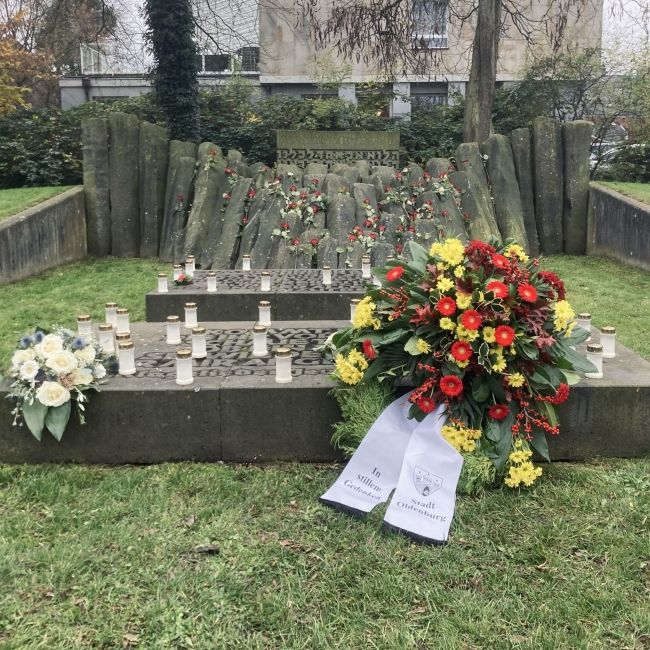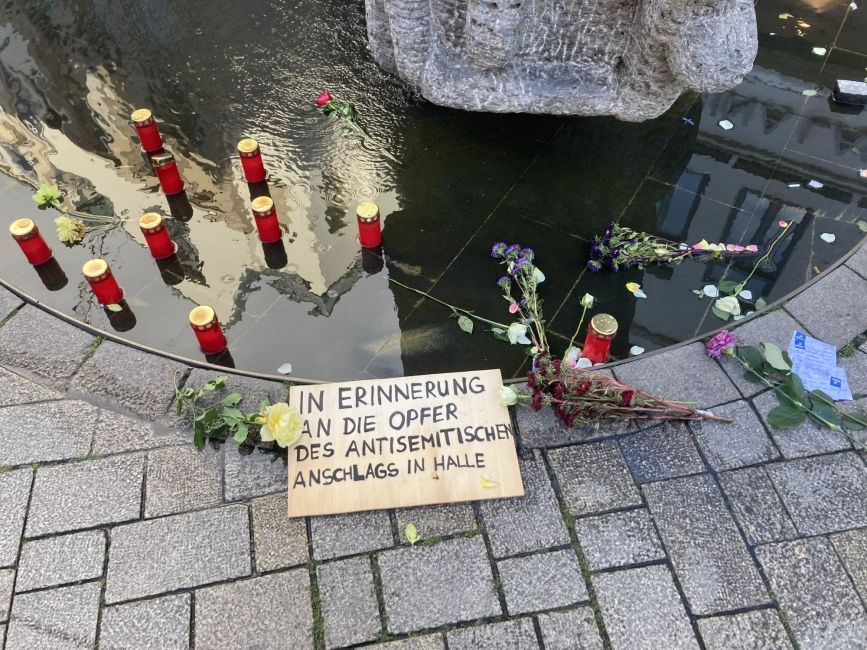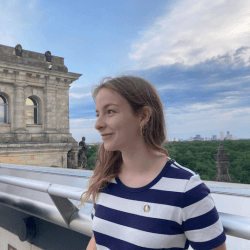Thoughts on Modern Jewish-German Identity
Last week marked the 83rd anniversary of Kristallnacht, a series of antisemitic pogroms under the Nazi Reich in 1938. One day after school, I sat down at one of the Oldenburg Holocaust memorials, which was decked in flowers and candles, and realized that I was sitting where the synagogue used to be. I felt a wave of emotions that I’m not sure how to describe.
I felt a very similar blend of emotions on Erev Rosh Hashanah, the eve of the Jewish New Year. I had been in Germany for less than a month and was attending the Oldenburg synagogue for the very first time. As we sang Ma Tovu (a prayer that is strongly connected with the idea of Jewish community), I teared up. Around the corner was a Holocaust memorial. A police car stood outside of the synagogue. Yet there we were -- singing the same songs that generations of Jews had sung before us.
I’ll put it this way: rural Utah doesn’t have any Holocaust memorials. Living alongside the scars of the Holocaust is new to me. To some extent, it embodies my journey to merge my Jewish and German identities.
None of this is to say that my Jewish life in Germany is built on grief. The Holocaust impacts Jewish-German life today, just as it impacts Jewish life everywhere, but it is not the foundation of my Judaism -- rather, community is. For all that Jewish-German and Jewish-American culture do differently, community is a value that I’ve experienced in both circles. I’ve been invited to numerous Shabbat dinners and events with the teenagers in my congregation. I’m currently preparing to change host families, and my Jewish community has gone out of their way to support me. The compassion of the Jewish community here has given me a home and sense of Gemütlichkeit. As an exchange student, that’s priceless.
But unfortunately, antisemitism isn’t gone, in Germany or elsewhere. Two months ago, police uncovered plans for an attack on a Hagen synagogue. Two years before that, an attack was attempted on a Halle synagogue. My synagogue has a strong security system, complete with security cameras and locked doors. On the flip side, I’ve also experienced philosemitism -- I’ve even had people apologize on Germany’s behalf when they find out that I’m Jewish, which is well intended but can feel strange.
Running this all through my mind at the memorial, I realized that my existence in Germany is inherently Jewish. I realize that this is a lot more personal than my typical blog post, but I find it important to write. Living abroad deepens one's understanding of their identity and the world they inhabit. For me, that includes Judaism.
What I’ve written here is not a guide to Modern German Judaism (for that, I would suggest graduate school). This blog post is merely my thoughts on my Jewish life in Germany. I hope, however, that it encourages you to learn more. As exchange students and citizen diplomats, we have a responsibility to learn the history of the places we live in.
Further reading on this topic:
Jews and Germans: Promise, Tragedy, and the Search for Normalcy by Guenter Lewy
Some of my favorite twentieth century thinkers in relation to this topic: Hannah Arendt, Walter Benjamin, Franz Kafka


